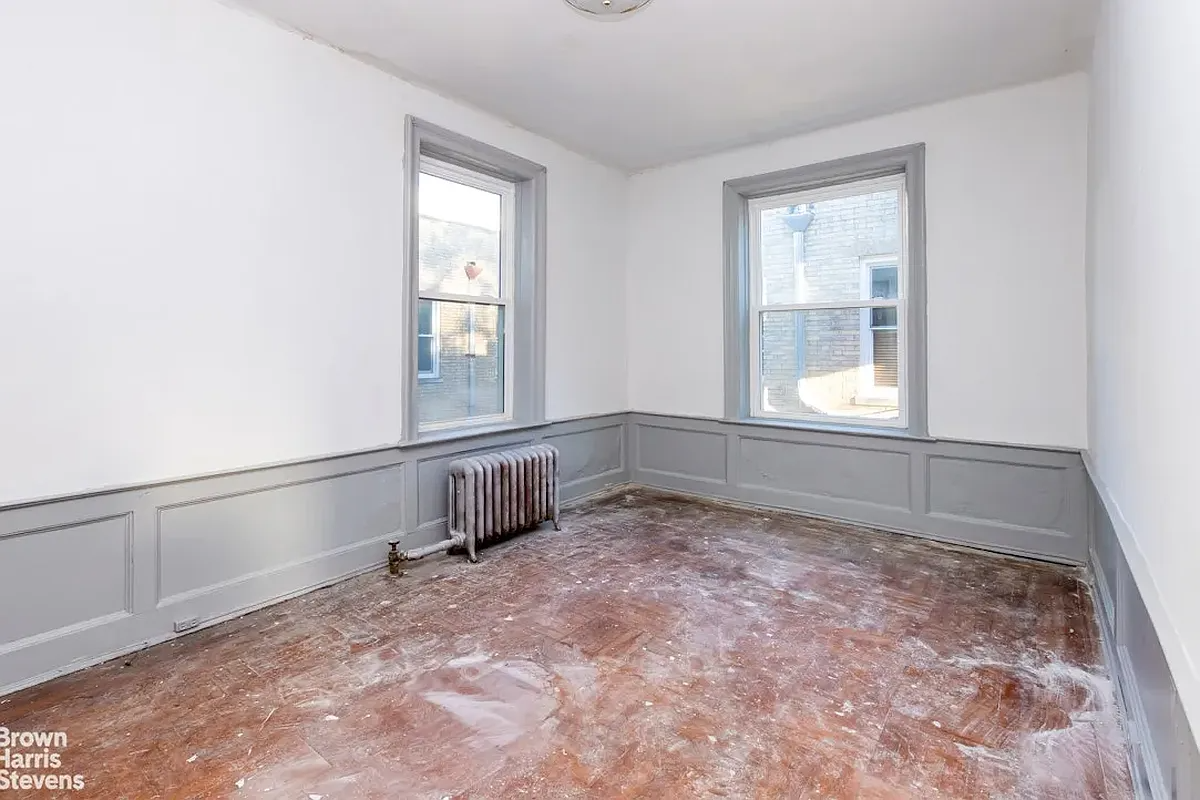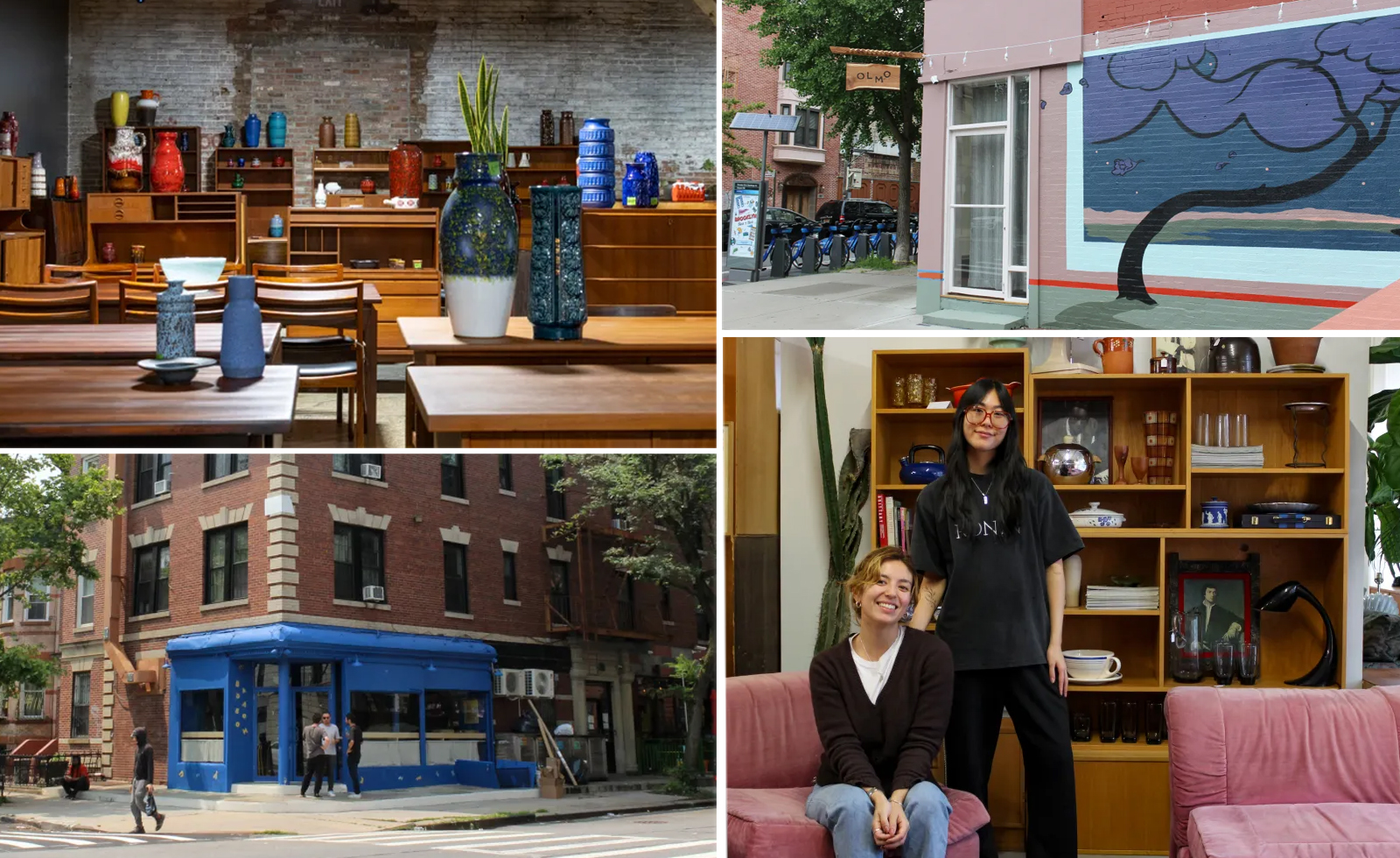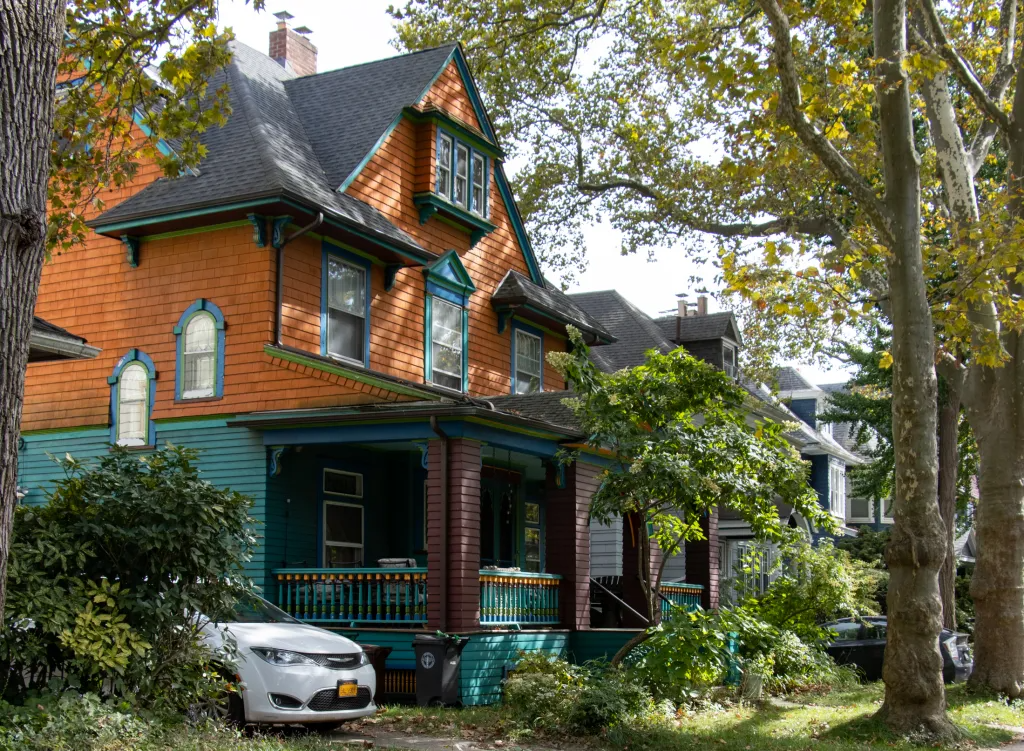'What's Wrong With Gentrification?' Asks New York Mag
This week New York Magazine takes a view on gentrification that is, if not contrarian, at least a little controversial. (The article follows a similar one in the semi-annual magazine n+1). As will come as no surprise to most readers, gentrification these days is treated as something of a dirty word. Why’s that? Mostly because…

 This week New York Magazine takes a view on gentrification that is, if not contrarian, at least a little controversial. (The article follows a similar one in the semi-annual magazine n+1). As will come as no surprise to most readers, gentrification these days is treated as something of a dirty word. Why’s that? Mostly because it conjures up associations of, as n+1 wrote, “the forced displacement of the urban working class by mobile, college-educated professionals.” This may be more myth that fact though: In his recent book There Goes the ‘Hood, Columbia urban planning prof Lance Freeman found that poor residents and those without a college education were actually less likely to move if they resided in gentrifying neighborhoods” and that “the discourse on gentrification has tended to overlook the possibility that some of the neighborhood changes associated with gentrification might be appreciated by the prior residents. In other words, the rehabilitation of an old house or the opening of an upscale bakery isn’t necessarily a zero-sum game in which the long-time residents are lose out. Not only that, claims the New York Magazine article, but gentrification is the only hope that many urban centers have of saving themselves: “The ailing cities that save themselves in the 21st century will do so by following Brooklyn’s blueprint,” the article says in closing. “They’ll gentrify as fast as they can.”
This week New York Magazine takes a view on gentrification that is, if not contrarian, at least a little controversial. (The article follows a similar one in the semi-annual magazine n+1). As will come as no surprise to most readers, gentrification these days is treated as something of a dirty word. Why’s that? Mostly because it conjures up associations of, as n+1 wrote, “the forced displacement of the urban working class by mobile, college-educated professionals.” This may be more myth that fact though: In his recent book There Goes the ‘Hood, Columbia urban planning prof Lance Freeman found that poor residents and those without a college education were actually less likely to move if they resided in gentrifying neighborhoods” and that “the discourse on gentrification has tended to overlook the possibility that some of the neighborhood changes associated with gentrification might be appreciated by the prior residents. In other words, the rehabilitation of an old house or the opening of an upscale bakery isn’t necessarily a zero-sum game in which the long-time residents are lose out. Not only that, claims the New York Magazine article, but gentrification is the only hope that many urban centers have of saving themselves: “The ailing cities that save themselves in the 21st century will do so by following Brooklyn’s blueprint,” the article says in closing. “They’ll gentrify as fast as they can.”
What’s Wrong With Gentrification? [New York Magazine]
Photo by kathyylchan





I have absolutely no problem whatsoever with gentrification. The problem is the ATTITUDE of the gentrifiers! They think that problems should automatically disappear! That because they have moved in that the junkies and dealers should magically go away. They think that they can block the sidewalk with their strollers or tell the children at Underwood “the others” what they can and cannot do. If the gentrifiers would simply be a little more humble, than perhaps all of these problems wouldn’t exist.
Montrose speaketh sense, as usual. My only beef with gentrification is this: Why can’t it just be nice-ification? Decent-ification? Why can’t the empty storefront be replaced with a nice butcher store instead of a foofy charcuterie? Why not a fishmonger instead of sushi? Every neighborhood used to have “decent” mom-and-pop stores for stuff like housewares, kids’ clothes, and other staples. Now, it seems there is no middle (except, interestingly, in some of Brooklyn’s kosher/orthodox quarters, where something like a middle lives on); no, we must jump from crappy 99-cent stores straight to high-end chains or indie boutiques, and from filthy bodegas to “gourmet” groceries, and from greasy spoons or Dunkin’ Donuts to Asian fusion cuisine. It is very instructive to pore over photos of commercial strips in areas like Flatbush or Park Slope in the first half of the 20th century; there was little luxury, but also little overt crap. Where is the middle, and why can’t that come back first?
“i like to give this example: the older person who bought a house for 30,000 and sells for 500,750,900 really makes out for sticking out rough areas for so long, but her kids then can’t buy and have to rent or leave the area
so to say there is no displacement is absurd on its face”—-but those same issues are not solely some inner city supposedly gentrified area. Prices of real estate have skyrocketed throughout metro area (which was my point).
To place the blame of not being able to afford neighborhood where grew up on ‘gentrifiers’ is absurd. There just aren’t that many of those folks. The rise in prices in area are because of across the board demand for housing – from increase in population most of which is from immigration
(Just look at percent of city population that is foreign born). It would considered xenophobic and racist to blame immigration so I think this is displaced to attitude on Brownstoner, Curbed, etc about the ‘Midwesterners’, from Ohio, etc. More acceptable to vent on them.
And by Columbia seizing half of Harlem, you really mean that Harlem’s biggest employer (Columbia) was trying to pay market rates for a couple blocks of storage warehouses that employ almost no-one and likely pay zero benefits to the few people that do work there.
Yes, Harlem really “won” that one.
I absolutely love that Lance Freeman book. It is one of the most enjoyable and enlightning books I have read. But I do think he discounts the negative effects of gentrifcation on renters — specifically, he undercounts the number who have to move. I know of instances where this has happened. It’s just not visible to his counting methods.
rent control, rent stabilization, and housing projects is/are THEFT pure and simple. it’s taking money from one person and giving it to another, so that the politicians who facilitate the stealing can shore up a political base to vote for them. They then use their to get money and power. it’s total BS.
joe from bk.
this is exactly the position my wife and i are in. her parents bought a place in brooklyn for 50,000 in the early 80s while working city jobs. now we are faced with the prospect of buying in the same neighborhood for 800,000. incomes certainly haven’t gone up 16x since the early 80s.
Posted by: joeingowanus at December 15, 2009 10:44 AM
Sometimes a 2 bedroom in a Fedders building seems like the only alternative…
The 100k SRO rooms were lost in several ways:
1) Homeowners combined them back into 1,2,3,4 family buildings
2) The buildings were demolished and replaced with other structures
3) More commonly, the rents were so low that the buildings deteriorated and the tenants moved out.
NYC’s SRO policy is horrific. SROs are a great way to live for the young, the single, the poor, or the temporarily relocated..
But NYC’s SRO/Rent Control/Anti-Harassment policies have lead to complete market failure — almost no new supply, no maintenance, and a complete destruction of value leading to massive conversion to other housing types.
The article made a few valid points that were hard to disagree with, but ignored far more points than it covered. Since it was a pretty short article, that is not surprising. Since it is NY Mag, which is a mirror in the face of upscale New Yorkers, not surprising, either.
As someone living smack in the beaker of that social experiment called gentrification, I think it’s much more complicated than most people think. Gentrification involves not just new money displacing old poverty, it is a stew of issues of wealth, culture, racism, homophobia, paranoia, resentments and expectations. The problem is the often accurate perception that the only way the neighborhood can improve is for white folks to move in, they don’t even have to be wealthy. Depending on the housing available in the neighborhood, the shock troops of gentrification are under 30 aged kids, looking for housing bargains, or artists looking for space. Or both. I’ve taken the A train at Nostrand Avenue for over 25 years, and have seen it when the only white faces on the platform were cops or lost European tourists, to now, where at least a third of the passengers are white, mostly the above mentioned kids, but over the last 5 years, more older people, often with children. My corner of the hood is changing. I’d be a fool not to say that much of that is good. I happen to think the best neighborhoods are a mixture of races, cultures and incomes.
I think the resentment creeps in from 2 sources. The loudest is from those who don’t have anything, never will, and will always feel that someone else kept them from success. It’s easy to blame “white people†or “the Manâ€, instead of yourself. Race is incidental. These types of people exist in every group of marginal and struggling people. White supremacist groups are as full of these types as your local streetcorner. No one, no matter how well intentioned, liberal, helpful or nice is going to be able to placate this bunch. The second source of complaint is at the crux of the matter. It comes from long timers who have seen the neighborhood go from good to bad to awful, have stuck it out, dealt with crime, lack of city services, bad schools, dirty and substandard stores, and have grown weary. If they could get out and afford it, they learned to shop elsewhere, school their kids elsewhere. They are out there every morning sweeping their stoops, their homes are immaculate, and they are proud members of their local churches and civic organizations. They are the salt of the earth, they vote, even though little good came to their communities. They learned not to trust the city, and they learned to make do. Now that people have “discovered†their neighborhoods and started to move in and make changes, and the city, especially the police, have started to address their concerns, they often resent that it took gentrification to bring about changes that were long overdue.
I could go on, but this is long enough.